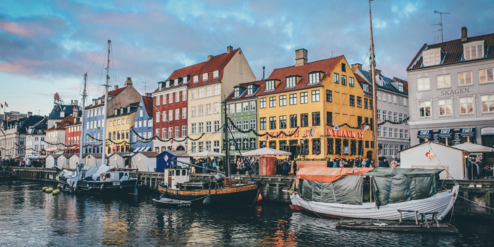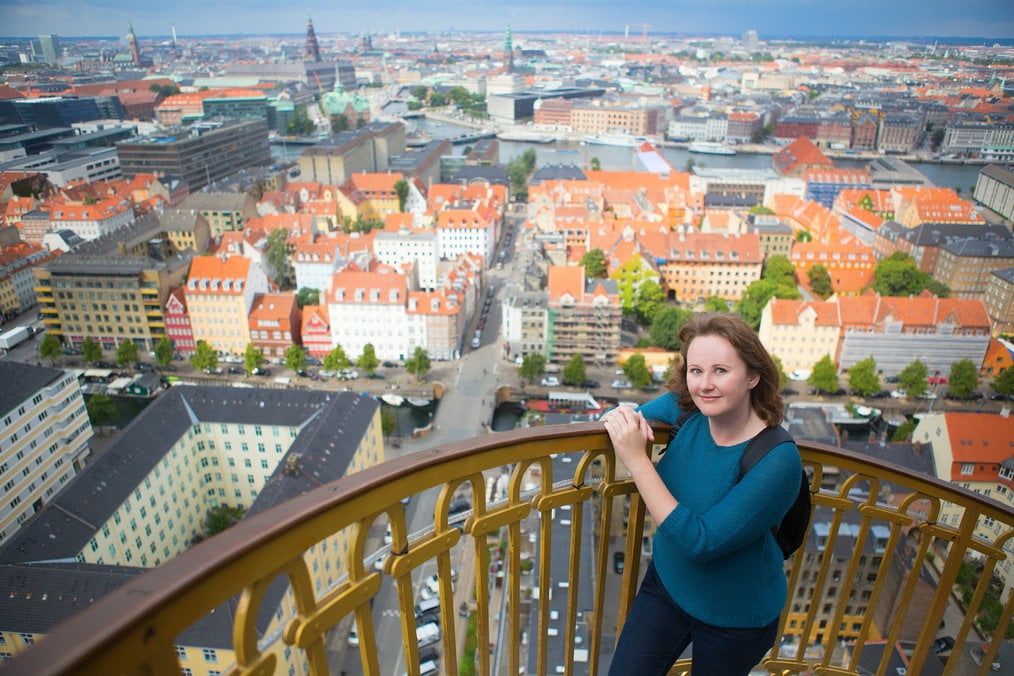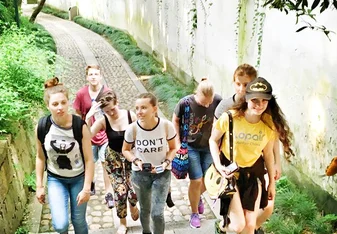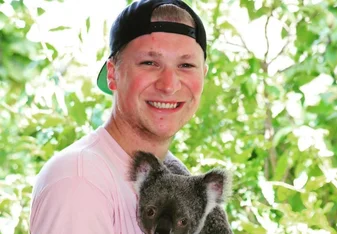
What You Need to Know About Becoming an Au Pair in Denmark
Denmark is a fantastic au pair destination. Here is a quick guide to finding work as an au pair in Denmark, including where to search for jobs and how to get a visa.
Key Takeaways 🔑
- Denmark is a relatively logistically easy place to be an au pair, and is in close proximity to the rest of Europe for exploration if desired.
- In order to au pair in Denmark, you must be between 18-29 years of age, unmarried and without children, and be able to speak and understand a “reasonable level” of at least one of the 5 main languages.
- Being an au pair is a great way to immerse yourself in the culture, integrate into a family, and explore a new place in an affordable way!

Thinking about becoming an au pair in Denmark? This Scandinavian country offers more than just charming castles and cozy bike-friendly cities—it’s a welcoming place to live with generous benefits for au pairs, including free housing, meals, and cultural exchange opportunities. Becoming an au pair in Denmark is a unique and affordable way to experience local life, especially for Americans or UK citizens interested in long-term travel.
Whether you’re looking for au pair jobs in Denmark or curious about the au pair visa requirements, this guide will walk you through everything you need to know.
What is an au pair?
An au pair is someone who is typically from a different country and lives with a host family to provide childcare and light household help, in exchange for room, board, and a stipend. Unlike a nanny, an au pair is typically not a professional caregiver and is viewed more as a temporary family member than an employee. Being an au pair provides you the unique opportunity to really become a part of the family, all while experiencing an affordable way to travel and immerse yourself in the culture.
Popular cities for au pairing in Denmark

As you're looking at au pair jobs in Denmark, one of the first decisions you'll need to make is where you want to work. Here are some of the top destinations in Denmark where you might consider looking for au pair jobs.
- Copenhagen: The capital of Denmark, Copenhagen is a colorful, bike-friendly, artistic international hub. It's packed with amazing museums, restaurants, and music venues, and just a few hours' train ride from other European destinations like Malmö, Sweden and Berlin, Germany.
- Aarhus: Denmark's second-largest urban center (and its happiest!), Aarhus is a young, trendy university town, crisscrossed by cobblestone streets and close to miles of tranquil hiking trails. It's a laid-back counterpoint to cosmopolitan Copenhagen, but no less charming.
- Odense: The country's third-largest city, named after the Norse god Odin, sits on an island right in the middle of Denmark. Odense is the birthplace of Hans Christian Andersen and has a number of museums and sites devoted to the author. It's also the official bicycle city of Denmark.
- Aalborg: A waterfront city with a Viking history, Aalborg is perched on the edge of Jutland, Denmark's northern peninsula. This rugged region is home to fjords, golden eagles, the country's largest forest, colorful traditional cottages, and the biggest carnival celebration in Scandinavia.
- Roskilde: Just about 20 miles west of Copenhagen, little Roskilde is one of Denmark's oldest cities. Its Viking history is showcased at the Viking Ship Museum, and the Gothic-style Roskilde Cathedral is the final resting place of dozens of Danish kings and queens. In summer, this region hosts the Roskilde Music Festival, one of Europe's biggest music festivals.
No matter which city you choose, you are sure to find yourself feeling at home between the social focus on equality and trust in Denmark, as well as the Danish concept of “hygge”, meaning a feeling of coziness and well-being.
Requirements to become an au pair in Denmark
It is relatively easy to become an au pair in Denmark, but there are a few key stipulations that you will want to make sure you meet before you apply. To become an au pair in Denmark, you’ll need to meet these basic requirements:
- Be between 18 and 29 years old.
- Be unmarried and have no children.
- Speak and understand a “reasonable”, or intermediate, level of at least one of the 5 main languages (Danish, Swedish, Norwegian, English, or German). This means that you should be able to communicate about basic necessities or have simple conversations in that language.
- Hold a valid driver’s license, if the host family requires you to drive (you may also be required to apply for your international license).
- Have not lived in Denmark before under a residence permit.
- Be able to prove that you are not related to the host family or share the same nationality.
You cannot apply if you’ve already worked as an au pair in Denmark previously, had a Danish residence permit, or had two or more au pair stays in other EU countries.
Cost of living and benefits for au pair jobs in Denmark
Before you accept any au pair job in Denmark, it's important to understand what your general cost of living and benefits will entail while you are there. Here's a quick breakdown.
- Salary & benefits: Under Danish law, families pay au pairs a minimum monthly stipend of 4,500 krone (about $700 USD). As an au pair, you’ll need to budget for personal expenses like travel, leisure, and meals outside of working hours. Host families pay for your round-trip flight if you're from outside the EU and must give you time to attend Danish language classes.
- Working expectations & holidays: Au pairs work 18 to 30 hours per week, typically 3 to 5 hours a day across 6 days. You’re guaranteed at least 1.5 days off each week. You also get all national holidays off and 3 weeks of vacation, planned with your host family.
- Housing & food: You’ll live with your host family and be given your own private room. Your host family will also provide you meals.
- Insurance: Your host family must provide accident and injury insurance. You’ll also get free healthcare through the Danish system, as long as you register as a resident within 5 days of arrival.
- Cost of living in Denmark: Like other Scandinavian countries, Denmark is relatively expensive. However, since au pairs don't have to pay for rent, bills, or food, general expenses are fairly low. In general, cities are more expensive than more rural areas, with Copenhagen being the costliest location.
Overall, being an au pair is an affordable and rewarding way to immerse yourself in another culture, travel the region, and make a meaningful connection with a family.
How to apply

Overall, applying to be an au pair in Denmark is a relatively straightforward process as long as you meet the minimum requirements.
- Find a host family: First step, find yourself a Danish host family that feels like a good fit! There are a variety of ways to go about this, but AuPairWorld is a great resource to get you started.
- Apply for a residence permit: Au pairs from non-EU countries must have a valid residence permit granted by the Danish government. These typically cover one year, with a possible extension up to 24 total months if the au pair and family want to continue working together. Applicants from other Nordic countries (Norway, Sweden, and Finland), and the EU don't need a residence or work permit in order to au pair in Denmark, but they do need a proof of residence from their local government.
- Sign an au pair contract: The au pair and host family have to sign an au pair contract, which is included in the official residence permit application. The contract should cover the au pair’s length of stay and working hours, as well as the job responsibilities and expectations of the au pair.
- Plan your logistics: Start building a relationship with your host family, and get your flights to Denmark booked! Remember that part of the benefit is that your host family covers the cost of these flights if you are coming from outside the EU.
Generally it only takes the Danish Agency for Labour Retention and International Recruitment about 1-3 months to process an au pair application, but it can take more like 3-6 months (or even longer) for you to complete the entire process from start to finish. Make sure you start these steps early and give yourself plenty of time to complete everything!
Ready to au pair in Denmark?
With all this in mind, you're ready to start applying for au pair jobs in Denmark! You can find a family that allows you to experience Danish culture (including the highly reputed Danish cuisine), explore the country and Scandinavian region, and help young Danes learn English.
Read more:









